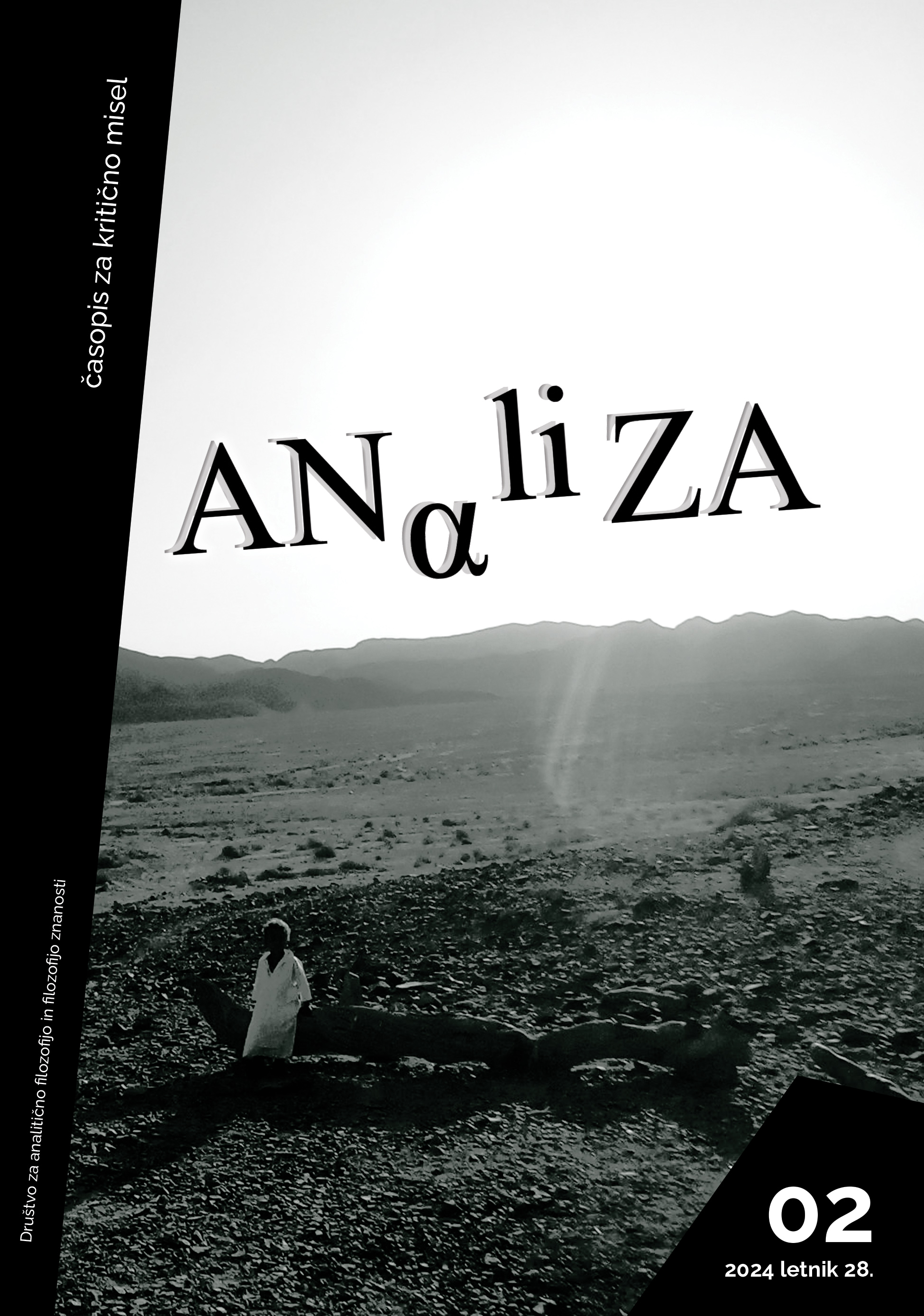Cilji omejene epistemske racionalnosti
Ključne besede:
epistemska racionalnost, omejena racionalnost, ne-idealna epistemologija, epistemski cilji, epistemske vrednostiPovzetek
Pojmovanja racionalnosti znotraj epistemologije se pogosto naslanjajo na idealizirane modele epistemskih agentov in okolja, v katerem ti delujejo. Omejena epistemska racionalnost je koncept, ki se takšnim idealizacijam poskuša izogniti in se pri postavljanju norm raziskovanja naslanja na empirične podatke o človeški kogniciji in epistemskem okolju. Izhaja iz Simonove omejene racionalnosti, Gigerenzerjeve ekološke racionalnosti in McKennove ne-idealne epistemologije ter deluje kot hibriden koncept, ki vsebuje tako normativne kot deskriptivne elemente in služi kot izhodišče za ponujanje epistemskih vodil, ki bodo pripomogle k izboljševanju naše epistemske situacije in doseganju epistemskih ciljev. Znotraj epistemologije zasledimo različne epistemske cilje, na primer oblikovanje resničnih prepričanj, upravičenje, znanje in razumevanje. V prispevku povzemam izbrane vidike razprave o epistemskih ciljih in vrednotah s poudarkom na veritističnem monizmu in prevprašujem, katere cilje bi morala zasledovati omejena epistemska racionalnost. Zaključujem, da lahko omejena epistemska racionalnost zasleduje različne vrste kognitivnega uspeha, ne zgolj resnice, vendar se omejuje na raziskovanje o tematikah, ki so za posameznika na nek način relevantne.
Prenosi
